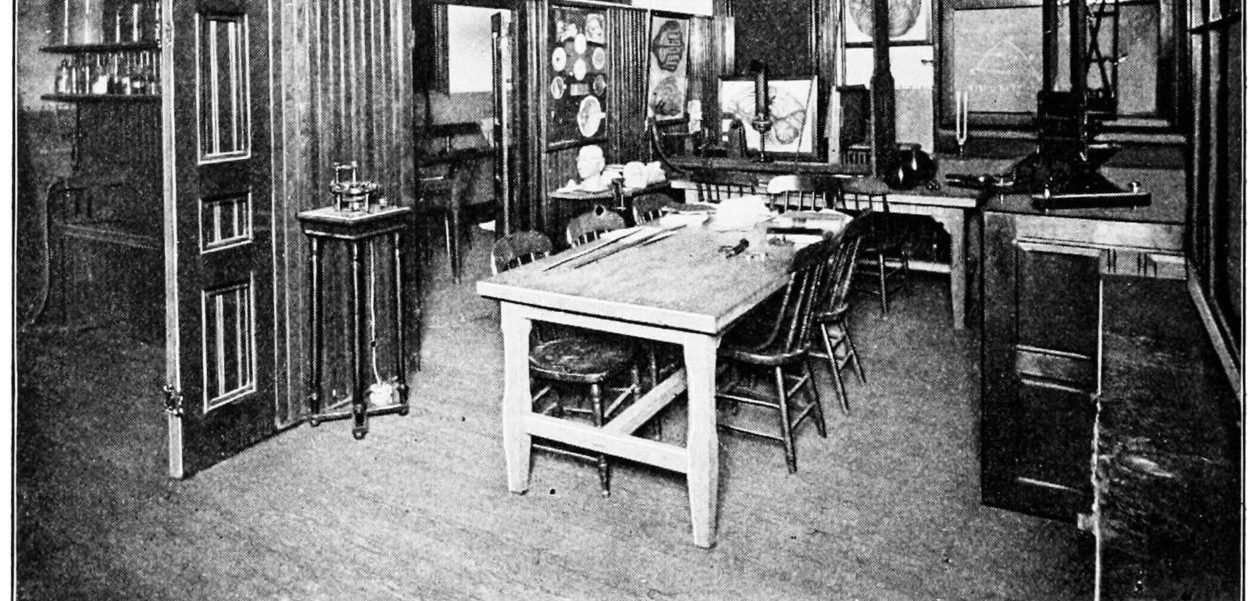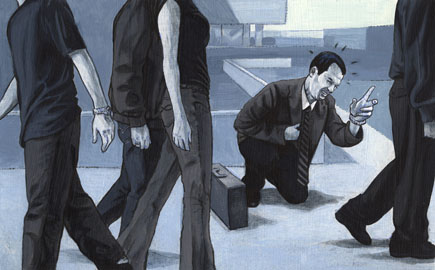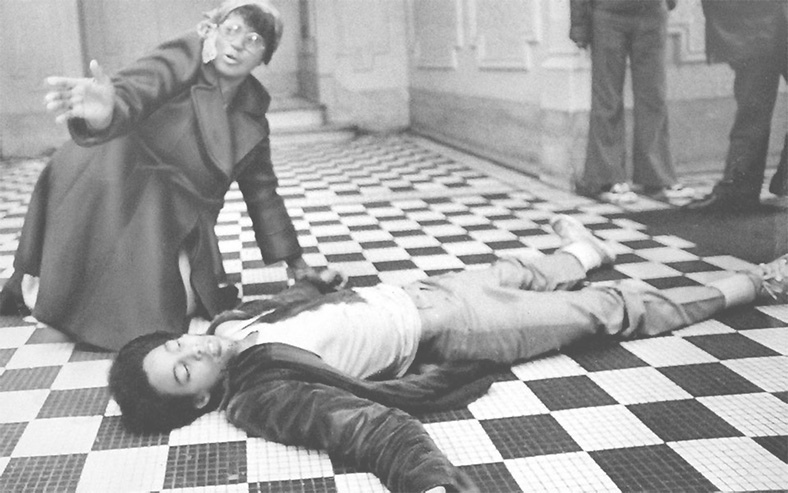When we see someone in need of help, the first thing that comes to our mind is to help that person. At least that’s how it should be. If so, why are there still so many people in need of help? Get ready to see how you fool yourself.
Humans are usually programmed to do whatever it takes to survive. This is called the survival instinct. In other words, being able to live is the most important thing for us. We do our best to protect ourselves and continue our lives.
Or for others?
As we try to ensure the continuity of our own lives, we also think about the lives of others.
Many of us even have certain superhero stories in our heads. We have predicted how we will react when faced with a certain event. But what if this situation does not reflect the truth and goes against our instincts?
Let us explain what we are trying to convey with an example. We take a look at a bizarre murder committed in 1964:
On March 13, 1964, a woman named Kitty Genovese was murdered outside her home. The woman, who parked her car a few meters back from her house, started walking towards her house, unaware of what was going to happen to her. Just then, someone named Winston Moseley followed him.
Kitty Genovese was stabbed twice by Winston Moseley before she could enter her home.
As a result of the unbearable pain, the woman began to scream. Someone who witnessed the event “Leave the woman alone!” yell. When Winston heard this, he immediately fled the scene, leaving Kitty Genovese covered in blood.
You ask how a human could commit such a murderous act, right? You even ask as if things like this still don’t happen… Anyway, we’ll get to this point.
If we lived in a perfect world, everything would be limited to that, but unfortunately we do not live in a perfect world.
Many eyewitnesses stated that Winston drove away from the scene and returned ten minutes later. Seeing that the woman was still lying on the ground, the man stabbed the already injured woman several more times. After that, he stole her money and harassed her.
A neighbor of Kitty Genovese’s had called the police at the time, but it was too late for everything when the police and ambulance arrived.
So, what does this have to do with psychology and well-being?

At the time of the murder, everyone in the 38-house neighborhood was aware that a murder had been committed, but no one took action to save the woman in need..
In this case, don’t you think all the neighbors of the woman were partners in that murder? More importantly, why did they choose to be a spectator to everything?
To find the answer to this question, two social psychologists conducted an experiment called the Bystander Effect Experiment.

Bibb Latane and John Darley experimented with a case similar to the Kitty murder we just mentioned. First, they selected subjects from among university students.
The students were told to discuss among themselves about their personal problems. However, each of the students would be in a room of their own, and the conversations would take place over microphone and loudspeaker.
Each student was given two minutes to express himself. All other participants’ microphones were muted while a student was speaking.
What the subjects were unaware of was that the speech they were listening to was actually pre-recorded:

The subjects were divided into five groups. The difference between these groups was simple:
People in group 1 were listening to only one person’s audio recording. The group number and the audio recording listened to were the same number. The 2nd group listened to 2 audio recordings, the 3rd group listened to 3… Finally, the 5th group listened to 5 audio recordings in total.
Remember, the students were not aware that the voices were being recorded.
In one of the audio recordings, a student’s epileptic attack was recorded. At the beginning of the recording, the student was talking about suffering from epilepsy, and that seizures can be deadly. In the continuation of the recording, the crisis began:
“B-b-en… kk-kk-riz… help… n-what-what-I can’t breathe… someone help me… k-die-dying…”
As the subjects could not see the person they were talking to, there was no way for them to understand that the situation was fictional. What the researchers would observe here was the responses of the subjects.
Would they come out of their rooms and help their friends?

Only 31% of the subjects stayed up and rushed to the phone in their room for help. In other words, the remaining 69% were content with just listening to the event. Even though they were worried, they did not take action.
This rate increased to 85% in the 1st group, who listened to the voice recording of only 1 person. In other words, if a person witnessed the event alone, he wanted to help more.
- In other words: If you are in a group in an emergency, your rate of helping the person in an emergency is greatly reduced. In addition, if you see the person in need of help alone, you are more likely to help.
In fact, it turns out that none of us is a superhero instinctively:
In large groups, we feel less responsible because we think someone else will intervene. Surely someone will come to help, right?
We have come to the end of our psychological experience this week. See you next week in a new article where we look for the reason for our behavior, stay with compassion and curiosity…
You can find other contents of our column below:
RELATED NEWS
The Horrible Psychological Experiment That Ruined The Lives Of Innocent Children (Monster Study)
RELATED NEWS
From Who Do We Learn About Violence? (Bobo Doll Experiment)
RELATED NEWS
Why Do We Sometimes Feel Helpless and Give Up? (Seligman Experiment)
RELATED NEWS
Why Do We Sometimes Feel Helpless and Give Up? (Seligman Experiment #2)
RELATED NEWS
The Drug That Caused Thousands of Disabled Children 63 Years Ago: Thalidomide (18+ Videos)
RELATED NEWS
First Experiment to Show What Kind of Disease Drugs Is (18+)
RELATED NEWS
The Inhuman ‘Compassion’ Experiment That Only a Cruel Can Do (18+)
RELATED NEWS
Why Do People Do Evil? (Stanford Prison Experiment)
RELATED NEWS
Do We Know Fear Innately or Do We Learn It Later? (Albert Experiment)
RELATED NEWS
